Getting a Reciprocal Real Estate License
What You Need to Know About Real Estate License Reciprocity
Are you a new real estate agent trying to see if you can expand your practice across state lines with a reciprocal real estate license? If so, you may want to explore the options of using this great tool.
In this blog post, we’ll cover the definition of real estate license reciprocity, the benefits of reciprocity and collective agreements, the requirements for obtaining a license through these programs, an overview of recognition programs, and the advantages of recognition programs. The ability to get reciprocity changes drastically from state to state, so follow your state’s guidelines closely.
What is Real Estate License Reciprocity?
Obtaining a real estate license can be a long and complex process, but what if you can do business in another part of the country? This is where real estate license reciprocity comes in. Real estate license reciprocity is an agreement between states allowing agents who hold valid licenses in one state to obtain a license in another without completing additional education or exams. This process makes it easier for agents to do business across state lines.
Benefits of Reciprocity and Cooperative Agreements
Reciprocity and cooperative agreements have several benefits for real estate agents. These include eliminating duplicative licensing fees, reducing time spent studying for multiple exams, allowing agents to expand their practices into other states without additional education requirements, and providing greater flexibility when listing properties across state lines.
“Obtaining a real estate license can be a long and complex process, but what if you can do business in another part of the country?”
This can be a massive benefit for agents that live close to state lines or those that have vacation homes in another state they want to be able to practice real estate. For instance, if you want to create a target market of individuals who live in a large metro area, but frequently buy lake houses across state lines, you will no be able to serve those clients properly.
Obtaining a License Through Reciprocity
Agents must first meet specific criteria to obtain a real estate license through reciprocity or cooperative agreement. These include having an active license in your home state with no disciplinary actions against you; completing all required continuing education credits; passing any required background checks; and meeting all other applicable requirements set forth by both your home state and the reciprocal state.
State Recognition of Real Estate Licenses
Another option for real estate agents looking to do business across multiple states is recognition programs. These programs allow agents with valid licenses from one state to obtain licenses in other states without passing additional exams or completing continuing education credits. However, each program has its own set of rules regarding eligibility and qualifications that must be met before an agent can obtain a valid license in another state through recognition programs.
Advantages of Recognition Programs
There are several advantages of using recognition programs instead of reciprocity or cooperative agreement programs when obtaining real estate licenses in multiple states. These include listing properties in numerous states without taking additional exams; avoiding duplicative fees; reducing time spent studying for multiple exams; and gaining access to markets that may not be available through reciprocal or cooperative agreements.
Reciprocal Real Estate License Summary
Real estate license reciprocity and cooperative agreements offer great opportunities for agents to expand their practices into new markets. Understanding what these terms mean, the requirements for obtaining a license through them, and the advantages offered by state programs can help you make informed decisions regarding expanding your business across state lines.







